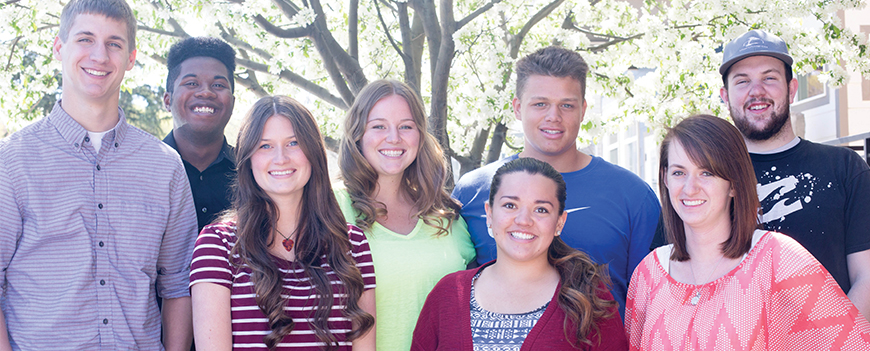Students voice USU stereotypes
“I probably sound awful,” said Harrison Cooper, a junior double-majoring in philosophy and global communication, as she explained one of the stereotypes she perceived at Utah State University.
Cooper was one of several students who explained the stereotypes they observed with other majors and within their own degree programs.
While Cooper said she does not believe it is good to generalize in any situation, she did share some of the stereotypes she has seen.
“I think when I hear someone is a certain major, I do think that they probably have certain qualities that a lot of other people studying something similar have,” Cooper said.
According to simplypsychology.org, stereotyping is an “over generalized belief about a particular group or class of people.”
The site also explained that stereotyping allows people to draw on past experiences to respond quickly to situations, which can be a good. The disadvantage of stereotyping is that it inhibits people from seeing the differences between individual people.
For example, Cooper described her perception of students of one particular major.
“I think a lot of engineering students are going to be really smart, but I think the only thing they really care about is getting a good job,” she said.
Kaden Clark, an undeclared sophomore, agreed that engineering students were the smart people who were always “hustling around.”
Clark also thought the College of Natural Resource’s majors fell into a certain group.
“I don’t want to say, like, hippy-ish, but they all seem to be wearing Chacos,” Clark said.
Stereotypes that Cooper saw within her own college, the College of Humanities and Social Sciences, were specific to anthropology majors and her own major, philosophy.
“I think a lot of anthropology students come off as hippies kind of, and I think a lot of philosophy majors come off as really deep airheads,” Cooper said.
Logan Carey, an undeclared freshman, even feels stereotyped by peers who have declared majors.
“Say you’re in a group of people where everyone knows their major, then you kind of feel you’re out of place in a sense,” Carey said.
Besides the stereotypes he feels against him, Carey saw gender stereotypes in the family, consumer and human development department as well as with the engineering college.
“If you think of a family life occupation, you think of women instead of men, but it’s also vice versa,” Carey said. “That’s what you normally see in engineering. It’s mainly men.”
This gender stereotype of women being underrepresented in science, technology, engineering and math (STEM) is actively being fought by President Barack Obama with his Educate to Innovate initiative. In 2015, the initiative included a White House Science Fair and a commitment of $240 million to help involve underrepresented groups in STEM subjects, according to whitehouse.gov.
“We’ve got half the population that is way underrepresented in those fields, and that means that we’ve got a whole bunch of talent … not being encouraged the way they need to,” President Obama said in a Google Plus hangout shortly after his 2013 State of the Union Address.
Carey also believes that stereotypes can hinder people from using their talents to pursue the degree they want.
“It hurts because it could discourage you from a certain occupation. You automatically eliminate that because that’s not what you ‘should’ do,” Carey said.
However, Clark feels that these stereotypes can potentially help.
“I feel like as long as you’re embracing it, and using it for the better, I’d say that it’s helping us,” Clark said.
Stereotyping doesn’t have to be negative. The first thought of Jeremy Clark, an undeclared freshman, was a positive stereotype he associated with the John M. Huntsman School of Business.
Clark sees the Hunstman scholars and the John M. Huntsman School of Business students as “super classy” and people who dress to impress.
Even though there can be stereotypes associated with the majors at Utah State University, Carey still feels the students of USU do a good job at coming together as one regardless of differences.
“I feel like USU is good at bringing everyone together. They have big programs and things where everyone can do something,” Carey said. “Even at the football games, you can see how we’re all together as one rooting for our team.”
— whitlewis7@gmail.com

